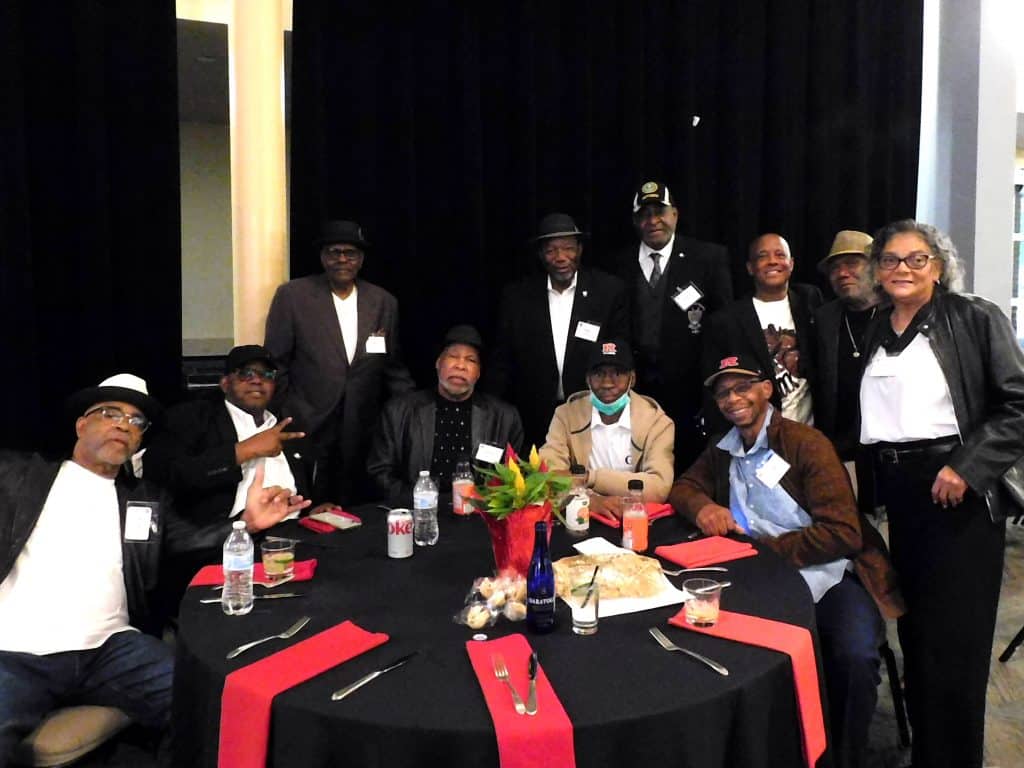
Over 100 Livingston College alumni and their guests danced to the sounds of the Sensational Soul Cruisers and shared memories of their times at the Livingston College reunion, held June 14, 2025, on The Rock!
In addition to the dinner dance that was the centerpiece of the reunion events, everyone was invited to participate in a campus tour, thanks to the Scarlet Ambassadors.
Following the tour, there was a late afternoon “meet up” in Livingston Student Center Gathering Lounge for everyone – even those not attending the dinner dance – where we were able to reacquaint ourselves with classmates, munch on some snacks and listen to music.
But the dinner dance in the Student Center was really the main event. A slide show of photos of the campus, the clubs, the Quads, and just about everything Livingston played on a big screen as a backdrop to the night’s events. Click here to watch the slide show featured at the reunion.
In addition to enjoying a full dinner and open bar, attendees were able to create new memories in our photo booth, catch up with old friends, exchange stories, laugh at the custom fortune cookies, and enjoy the sounds of the Soul Cruisers, who kept the dance floor hot!
The unofficial guest of honor was Leroy Haines, Assistant Dean/Director of Residence Life.
The highlight of the evening was when we shared memories from our time at Livingston College, entertaining everyone with stories and highlights of their time on the Rock, reminding us of what a unique experience and experiment Livingston College was. Click here to view video of Livingston College memories from classmates.
Let’s all treasure the fact that no one will ever again have the experience we had attending this unique and wonderful Livingston College.
Feel free to share this with other alumni who weren’t able to attend, even if it makes them jealous!
Click here to view photos from the event.
Please complete a short survey to share your feedback about the event and share your ideas for future events!
Special thanks to Lucille Lo Sapio (LC ’75) and the LAA reunion committee for organizing the event.
The latest news from LAA!
- Soul Cruising at the Livingston College Reunion
- Sara Rubiano, 2023 Pride Award Winner, Is a Dreamer Who Refuses to Live in the Shadows; Studied Public Policy at Rutgers
- Divon Pender, 2023 Pride Award Winner, Serves on South Plainfield Board of Education; Studied Education Policy at Rutgers and the University of Maryland
- Executive Board and Council
- Livingston Reunion: Celebrating the ’70s to Be Held June 14, 2025


